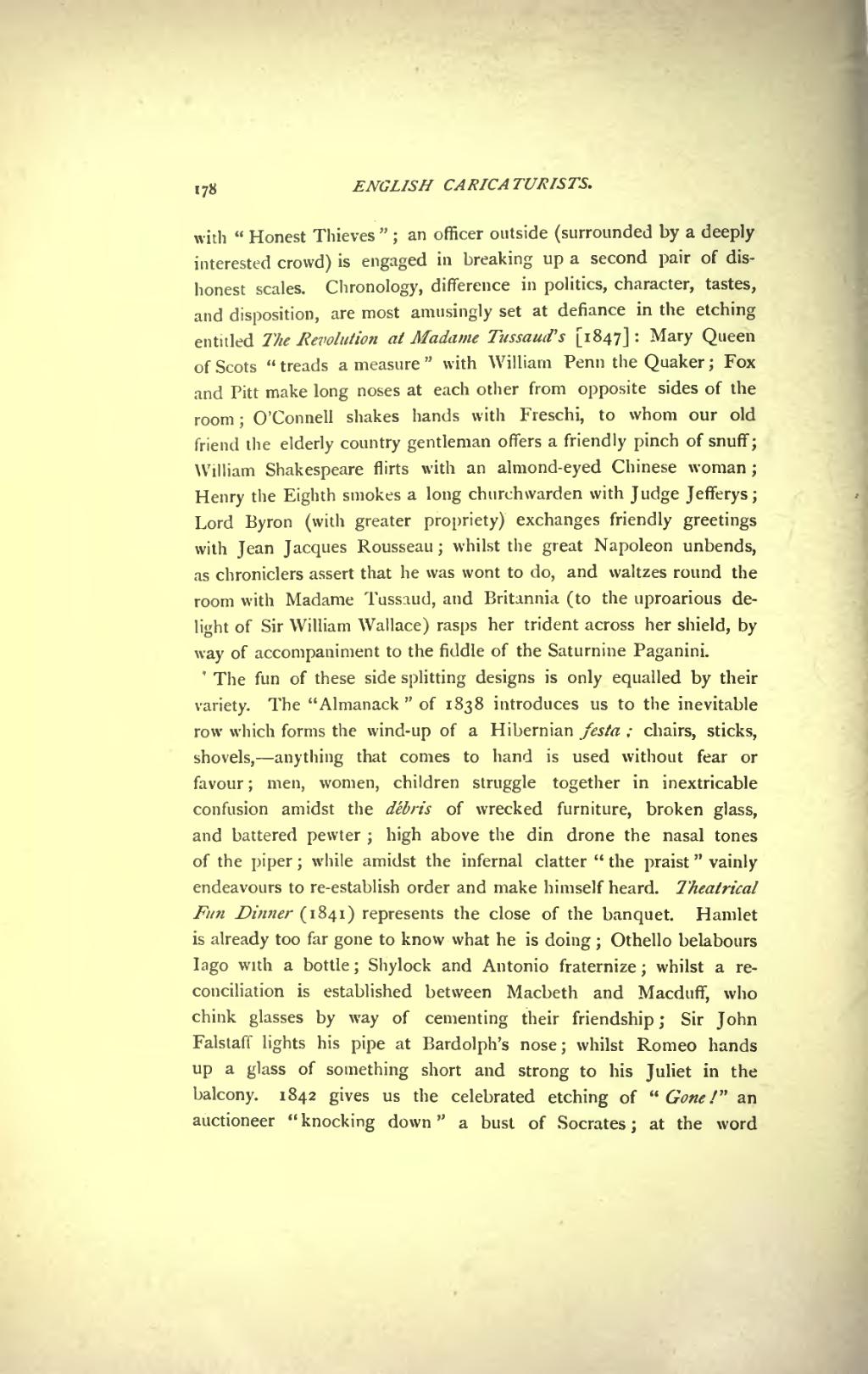with "Honest Thieves"; an officer outside (surrounded by a deeply interested crowd) is engaged in breaking up a second pair of dishonest scales. Chronology, difference in politics, character, tastes, and disposition, are most amusingly set at defiance in the etching entitled The Revolution at Madame Tussaud's [1847]: Mary Queen of Scots "treads a measure" with William Penn the Quaker; Fox and Pitt make long noses at each other from opposite sides of the room; O'Connell shakes hands with Freschi, to whom our old friend the elderly country gentleman offers a friendly pinch of snuff; William Shakespeare flirts with an almond-eyed Chinese woman; Henry the Eighth smokes a long churchwarden with Judge Jefferys; Lord Byron (with greater propriety) exchanges friendly greetings with Jean Jacques Rousseau; whilst the great Napoleon unbends, as chroniclers assert that he was wont to do, and waltzes round the room with Madame Tussaud, and Britannia (to the uproarious delight of Sir William Wallace) rasps her trident across her shield, by way of accompaniment to the fiddle of the Saturnine Paganini.
The fun of these side splitting designs is only equalled by their variety. The "Almanack" of 1838 introduces us to the inevitable row which forms the wind-up of a Hibernian festa; chairs, sticks, shovels,—anything that comes to hand is used without fear or favour; men, women, children struggle together in inextricable confusion amidst the débris of wrecked furniture, broken glass, and battered pewter; high above the din drone the nasal tones of the piper; while amidst the infernal clatter "the praist" vainly endeavours to re-establish order and make himself heard. Theatrical Fun Dinner (1841) represents the close of the banquet. Hamlet is already too far gone to know what he is doing; Othello belabours Iago with a bottle; Shylock and Antonio fraternize; whilst a reconciliation is established between Macbeth and Macduff, who chink glasses by way of cementing their friendship; Sir John Falstaff lights his pipe at Bardolph's nose; whilst Romeo hands up a glass of something short and strong to his Juliet in the balcony. 1842 gives us the celebrated etching of "Gone!" an auctioneer "knocking down" a bust of Socrates; at the word

